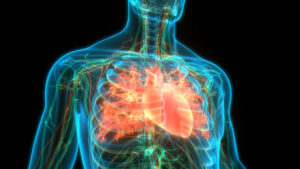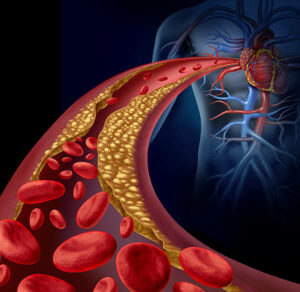Heart disease is the leading cause of death worldwide. It impacts millions every year and often develops without obvious symptoms. However, the good news is that it is preventable in many cases. Prevention requires understanding risks and making healthier choices. It also involves working closely with a trusted medical provider. This is where a family medicine provider can play a pivotal role.
This article explores how family medicine providers can help prevent heart disease. We will also discuss tips for finding the right medical provider for family medicine near you.
How Family Medicine Can Help Prevent Heart Disease
Family medicine providers are your most accessible and consistent partners in protecting your health. They train to care for patients across all stages of life.
Family medicine providers’ role in heart disease prevention goes far beyond routine checkups. Here are several ways in which they actively prevent heart disease.
Identifying Risk Factors
Heart disease risk factors, like high blood pressure, high cholesterol, and diabetes, often do not show clear symptoms. That is why it is important to see your family medicine provider regularly. They can check your health through screenings and tests. They can also look at your medical history, your family’s health history, and your lifestyle.
This helps them find out if you are at risk for heart problems. Catching these risks early means you can take steps to stay healthy before heart disease starts.
Creating a Personalized Health Plan
Heart disease prevention is not one-size-fits-all. A family medicine provider tailors health plans based on your unique needs and circumstances.
These plans may include recommendations for dietary changes, exercise routines, and stress management techniques. For instance, they may suggest adopting a Mediterranean diet. This diet is rich in fruits, vegetables, and healthy fats to reduce heart disease risks.
They can also explain how to devise a balanced fitness regimen that fits your lifestyle.
Monitoring and Managing Ongoing Health Conditions
Some health problems, like high blood pressure, diabetes, and obesity, can lead to heart disease.
Family providers can help you take care of these conditions. They can check your health regularly and change your treatment plan as needed.
For example, if your blood pressure is high, they might give you medicine, suggest eating less salt, and track your progress.
Providing Preventive Screenings
Health checks can discover heart problems early. Family providers can perform checks on cholesterol, blood pressure, and blood sugar.
These tests show how healthy your heart is. They help spot issues before they get serious.
Educating Patients About Heart Health
Learning about heart health is important. Family providers can explain things in simple terms. They can show you how your choices affect your heart. This can help you make better decisions to stay healthy.
Building Long-Term Relationships
Family providers do not just treat you once. They get to know you over time.
They learn about your health history, and this can help them notice changes early. This long-term care helps them keep you healthy and catch problems quickly.
How to Find the Best Family Medicine Provider
Finding the right family medicine provider is a crucial step toward maintaining your heart health.
Not all healthcare providers are the same. Selecting the right one can make a significant difference in your preventive care experience.
Here are a few tips to help you choose the best provider for your needs:
Research Qualifications and Experience
Start by researching the qualifications and experience of potential providers. Look for someone trained in family medicine and experienced in preventive care.
Providers equipped with specialized skills in managing chronic conditions are often a better fit.
Seek Recommendations
Ask for recommendations from friends, family, or colleagues who have had positive experiences with providers.
Reviews and testimonials can provide valuable insights into the provider’s quality of care and the satisfaction of patients.
Consider Communication Style
Heart disease prevention involves a lot of collaboration between you and your provider.
Choose someone who listens attentively, answers your questions clearly, and treats you with respect. This ensures that you feel comfortable discussing your health concerns.
Evaluate Accessibility
It is important to select a provider that offers convenient access to care. Check if their office is near your home or workplace. It is also important to learn if they have flexible appointment hours and can accommodate your schedule.
A provider who is easy to reach will be more accessible for regular checkups and emergencies.
Look for Comprehensive Care
A good family medicine provider can provide comprehensive care. They should provide care that addresses your physical, emotional, and mental well-being.
They should be able to coordinate with other healthcare professionals if specialized care is needed.
Choose a Provider Who Prioritizes Prevention
Heart disease prevention requires a proactive approach. Ensure that your chosen provider emphasizes preventive care and conducts thorough screenings.
They should also provide a personalized health plan focused on reducing your risks.
Reliable Family Medicine Near You for Heart Disease Prevention in Wellington, FL
Heart disease does not have to be inevitable. Working with the best provider of family medicine provider near you can empower you to manage your risks. They can also help you adopt healthier habits.
Have you been searching for the ideal partner in heart disease prevention? Look no further than nurse practitioner Shariffa Gunawardene at Advanced Medical. With her extensive training in family medicine and commitment to patient care, she is ready to help you. Call (561) 434-1935, and schedule a consultation today. Your heart will thank you.
We look forward to serving you!
Sources:
https://my.clevelandclinic.org/health/diseases/24129-heart-disease
https://www.mayoclinic.org/diseases-conditions/heart-disease/symptoms-causes/syc-20353118
https://www.mayoclinic.org/diseases-conditions/heart-disease/diagnosis-treatment/drc-20353124







